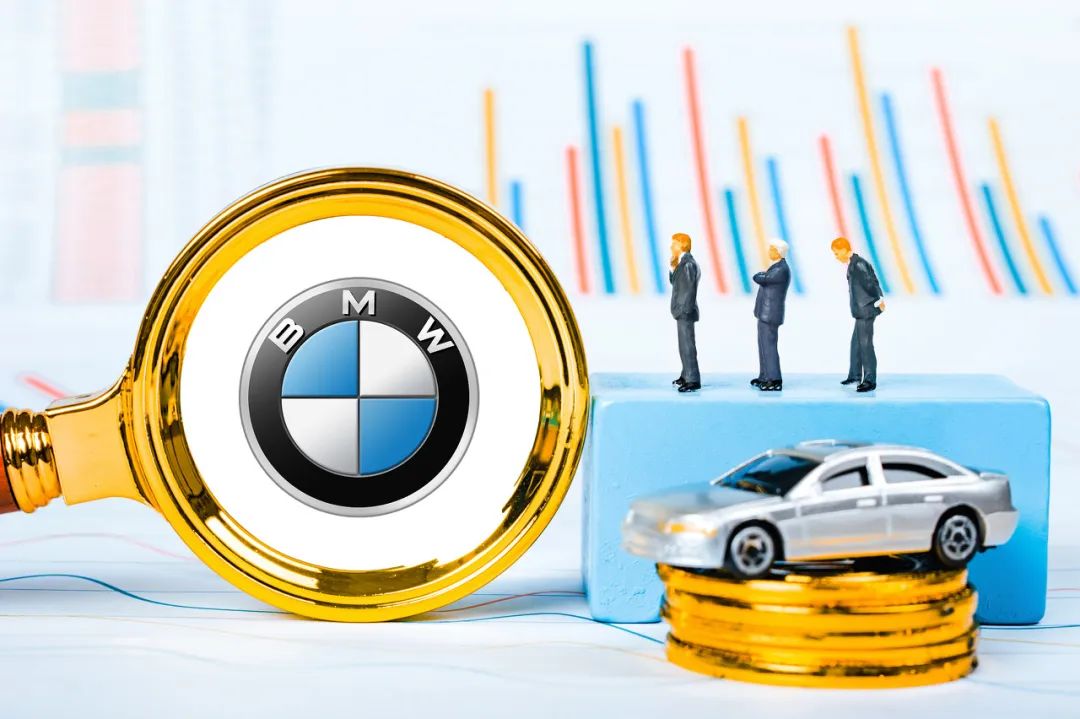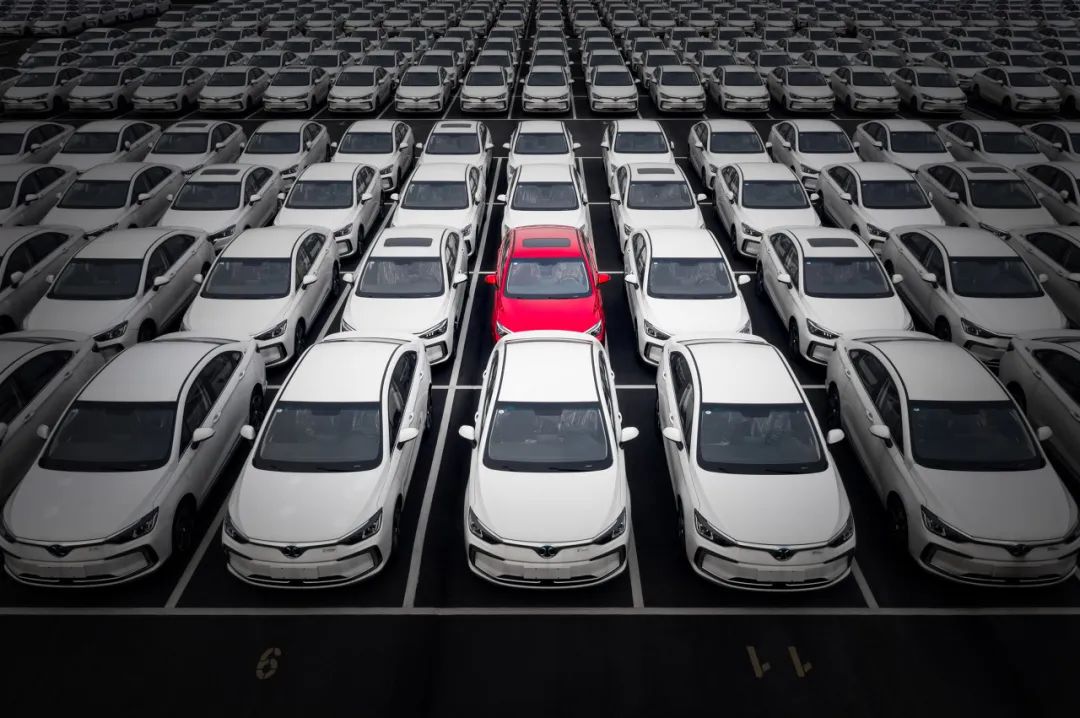BMW eats "turnip grass"
![]() 09/24 2024
09/24 2024
![]() 380
380

A good horse doesn't eat the grass it has rejected, but BMW doesn't necessarily follow this rule.
From "reducing prices to maintain market share" to "stabilizing prices through reducing production," BMW has exited the "price war" in the Chinese market for just two months and is forced to once again court customers with price cuts due to the harsh market conditions. Today's Chinese market has already undergone significant changes. Joint venture brands are no longer the absolute mainstream, and the luxury car market is no longer dominated solely by BBA (BMW, Benz, Audi). BMW has no better alternative.

After thoroughly analyzing and summarizing August sales data, BMW has finally abandoned its fantasies and set aside its pride, embracing the mainstream market strategy of exchanging volume for price despite the potential embarrassment. During the Chengdu Auto Show in early September, when discussing the price issue of concern to the outside world, Gao Xiang, President and CEO of BMW Group Greater China, still insisted, "The current price war is unhealthy and unsustainable for both automakers, consumers, and dealers." Gao Xiang's viewpoint is undoubtedly correct. However, long-term development visions must give way to immediate survival concerns. Recent authoritative media reports indicate that BMW has decided to reduce the prices of relevant models, signaling BMW's return to the "price war" just two months later.

This move was a necessity. In the short term, after experiencing price cuts followed by price increases, BMW has discovered that Chinese consumers are no longer buying it. After all, price cuts have become the norm in the rapidly evolving and intelligent Chinese auto market, where BMW is no longer a must-have luxury brand. In August, BMW's total sales in the Chinese market were only 34,800 units, a year-on-year decrease of 42%, hitting a low point; monthly sales ranked 15th among all brands, down six positions. In that month, none of BMW's models sold more than 10,000 units, and even its best-selling 3 Series only sold less than 8,000 units.

It is worth noting that BMW has consistently ranked as the top-selling luxury car brand in China over the past few years, keeping Mercedes-Benz and Audi firmly in its rearview mirror. However, in August, BMW's sales suffered a significant decline due to price increases, while Mercedes-Benz and Audi, with relatively stable prices, sold 49,500 and 47,900 units respectively, achieving substantial leads. Even greater pressure comes from the BMW Group level. Data shows that in the first half of this year, BMW Group delivered a total of 1.2134 million vehicles globally, a slight year-on-year decrease of 0.1%. Among them, BMW brand global sales increased by 2.3% year-on-year to 1.0965 million units. However, BMW's most important market, China, showed a downward trend. In the first half of the year, BMW China sold a total of 375,900 units (including BMW and MINI), a year-on-year decrease of 4.2%. BMW's related announcements have also shifted from optimism, predicting a slight decline in deliveries for fiscal year 2024, with key financial indicators significantly below market expectations.

Swinging between price wars Faced with the intense competition and price wars in the Chinese market, BBA, which once dominated the Chinese luxury car market, has had to bend over backwards to engage in this brutal war. Last year, BMW offered an annual discount rate of 17.66%, higher than the industry average of 15.7%. Driven by prices, BMW sold 825,000 units in the Chinese market in 2023, an increase of 4.2% year-on-year, but still below the group's global market growth rate of 6.5%. In June this year, BMW showed even greater sincerity, with its pure electric model BMW i3 offering a "steep discount," with the entry-level model priced at 353,900 yuan reduced to as low as 170,000 yuan. The BMW i3, priced at over 300,000 yuan, suffered from issues such as being a gasoline-to-electric conversion and having low intelligence levels, but the deeply discounted price made it a steal. In that month, 6,952 i3s were sold, ranking second among joint venture new energy vehicles and setting a new record. However, BMW did not sustain its "enthusiasm." The ongoing price war eroded the company's profits and seriously affected dealer interests. In July, it was rumored that BMW had decided to exit the year-long strategy of "reducing prices to maintain market share" and shift to "stabilizing prices through reducing production." On July 12, BMW China responded to market concerns by stating that it would focus on business quality in the Chinese market and support dealers in a steady and solid manner. Immediately afterward, the terminal prices of BMW models generally increased by 30,000 to 50,000 yuan. This move even resulted in some consumers who had already placed orders being required to pay extra to take delivery of their vehicles.

After BMW exited the price war, Mercedes-Benz and Audi also briefly expressed intentions to follow suit, but ultimately, only BMW firmly implemented this strategy. The lack of integrity from its peers led some potential BMW buyers to visit Mercedes-Benz and Audi 4S stores. BMW's decision to raise prices after cutting them sparked heated debates online. On social platforms, various car reviewers almost unanimously advised consumers considering BMW to wait and see. In their view, given the current Chinese auto market environment, BMW's price increase strategy is unlikely to be sustainable. Unexpectedly, just two months later, this prediction came true. During these two months, BMW owners who bought their cars during the price increase period felt betrayed.

The market has undergone significant changes Whether we like it or not, the Chinese auto market has undergone significant changes. Ten years ago, who would have thought that joint venture brands would be battered in the Chinese market, and that BBA would have to resort to price cuts to maintain their market share? In the first eight months of this year, the market share of Chinese auto brands has reached 63.2%, making them the dominant force. In the transition from traditional fuel vehicles to new energy vehicles, Chinese automakers have overtaken joint venture brands in terms of technology, production capacity, and supporting facilities, giving birth to BYD, the global king of new energy vehicles. As the penetration rate of new energy vehicles in the Chinese auto market continues to rise rapidly, slow-moving joint venture brands have had to readjust their market strategies. It is understood that in the first half of this year, over a hundred models from 40 auto brands offered discounts, subsidies, or price cuts. Comprehensive calculations show that the discount rate for Chinese brands was 7.3%, while that for joint venture brands reached 19.2%, and even luxury brands, which used to maintain relatively stable prices, had a discount rate of 18.4%.

From early imitation and cooperation to comprehensive independent research and development, Chinese auto brands are no longer synonymous with low-end products. Especially in the new energy sector, high-end new energy vehicles are firmly dominated by Chinese brands, with prices continuing to rise. AITO, backed by Huawei, has repeatedly set new sales records this year. The AITO M9, with a starting price of 469,800 yuan, has become a phenomenal product, ranking first in luxury car sales above 500,000 yuan for multiple consecutive months, continuously setting new sales records for high-end Chinese models. BYD's million-yuan luxury SUV, the U8, has instantly raised the ceiling for Chinese auto brands. From "can't afford a BMW" to "can't afford not to buy a BMW," it's time for BBA to make big changes.







